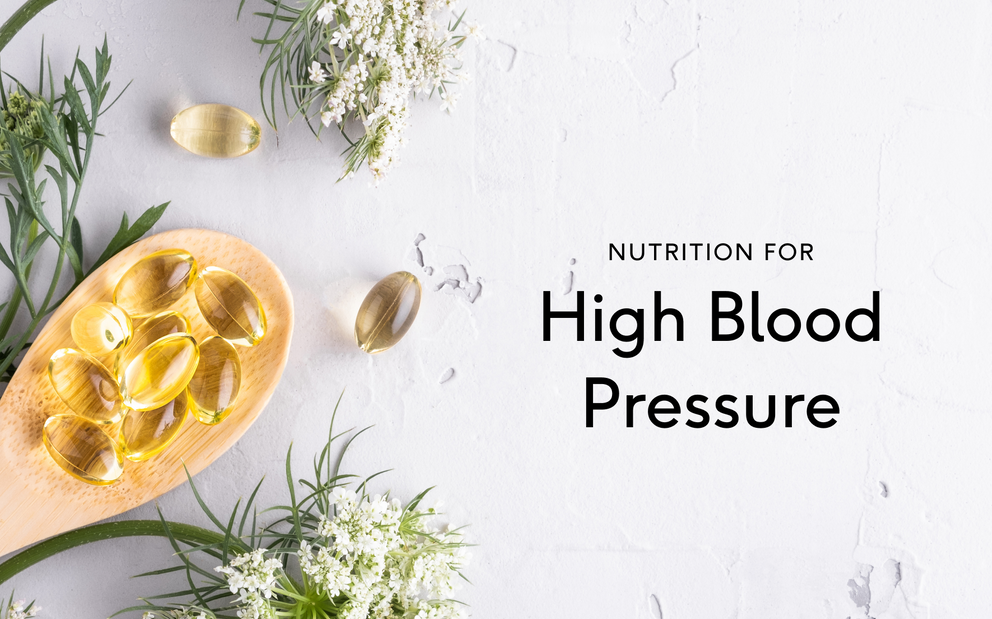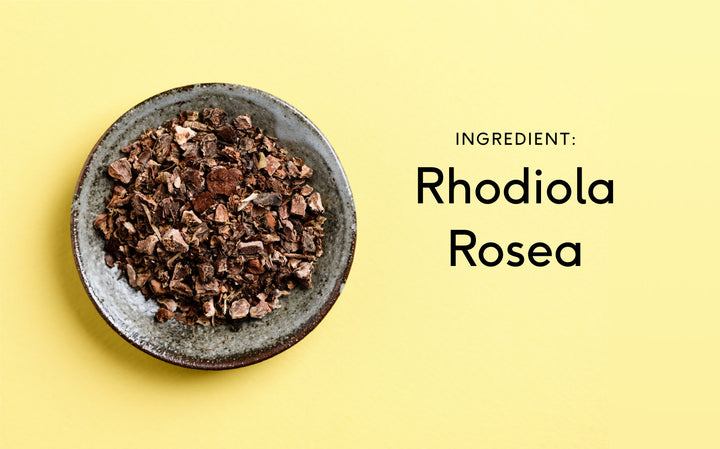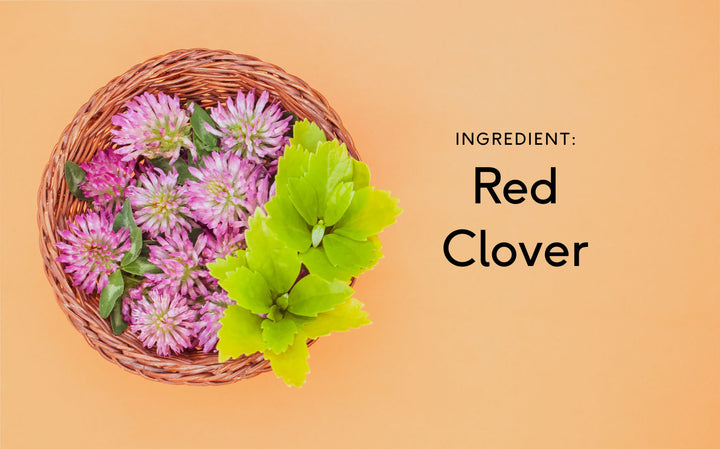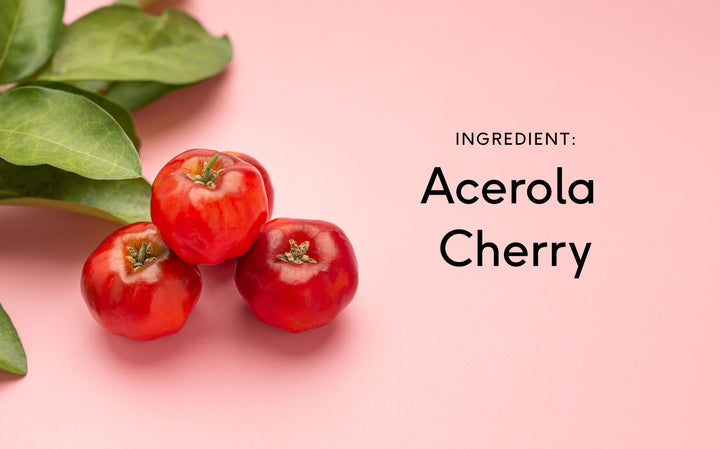Best Vitamins and Minerals for High Blood Pressure [2025 Nutritionist Reviewed]
Fiona holds an MSc in Nutritional Medicine and a qualification in Nutritional Therapy. Fiona specialises in skin health and is also the author of the acclaimed book, The Happy Skin Solution.
Fiona holds an MSc in Nutritional Medicine and a qualification in Nutritional Therapy. Fiona specialises in skin health and is also the author of the acclaimed book, The Happy Skin Solution.
Table of contents

| What causes high Blood Pressure | High salt and fat diet, being overweight or obese, genetics, age, stress, illness, medication, pregnancy |
| What classifies as high Blood Pressure | Blood pressure readings > 140/90mmHg |
| Risk factors associated with high Blood Pressure | Cardiovascular issues - stroke, heart failure, heart attack or kidney disease |
| What Vitamins can regulate Blood Pressure | Vitamin D, Vitamin C, Vitamin B6, Vitamin B12, Folic Acid |
| What Minerals can regulate Blood Pressure | Magnesium, Potassium |
| What additional ingredients can reduce high Blood Pressure | Coenzyme Q10, Omega-3, Olive leaf, Beetroot |
1. What is blood pressure?
Blood pressure measures the force against artery walls as the heart pumps blood around the body1. A blood pressure reading is expressed as two numbers: systolic blood pressure, when the heart contracts and pumps blood2 and diastolic blood pressure when the heart relaxes and refills with blood2 . Normal blood pressure is between 90/60 and 120/80 mmHg3 measured in millimetres of mercury (mmHg).
2. What is high blood pressure?
High blood pressure (hypertension) is a health condition where systolic or diastolic blood pressure (SBP or DBP) is persistently elevated, even at rest4. It increases the risk of cardiovascular problems such as stroke, heart failure, heart attack or kidney disease5.
3. Can vitamins help with blood pressure?
Adopting healthy lifestyle changes and nutrition are crucial for controlling blood pressure and reducing heart disease risk. A balanced diet rich in fruits, vegetables, whole grains, omega-3 fatty acids, and low-fat dairy products is recommended, similar to the Dietary Approaches to Stop Hypertension (DASH) diet 6.
Additionally, maintaining a healthy body weight is key for reducing blood pressure; therefore, weight loss may be beneficial for some people.
Moreover, mounting evidence suggests specific vitamins and supplements may lower blood pressure, such as the ones listed above, because they affect endothelial function, which is linked to developing hypertension.
4. What vitamins are good for high blood pressure?
There are 3 main vitamins that are thought to lower high blood pressure:
Vitamin D
Vitamin D is a fat-soluble vitamin subdivided into two types: vitamin D3, which is found in animal products and also made by the skin when it is exposed to sunlight7 ,and vitamin D2, which is found in plants7. Vitamin D regulates calcium and phosphate for bone health and aids muscle health8.
Vitamin D regulates blood pressure by controlling the endothelial cells9 that produce nitric oxide for vasodilation to widen the blood vessels, thus lowering blood pressure9.
Vitamin D also has been demonstrated to play an important role in regulating inflammation in the body10. High levels of inflammation have been linked to an increased risk of blood pressure11.
Vitamin C
Vitamin C also known as ascorbic acid, is a water-soluble vitamin and antioxidant that helps protect cells from damage caused by free radicals 12. It also supports collagen synthesis13 and contributes to a strong immune system14.
Vitamin C boosts endothelial function by promoting the production of nitric oxide, a vasodilator15. In one meta-analysis, vitamin C supplementation reduced systolic and diastolic blood pressure15. That being said, vitamin C may only benefit blood pressure in people with early endothelial dysfunction and not likely benefit people with advanced cardiovascular disease where significant damage has already occurred16. Put simply: it’s better to take vitamin C sooner rather than later.
Vitamin C may also remove free radicals, reduce oxidative stress, and lower blood pressure17 caused by excess free radicals and insufficient antioxidants18.
Folic acid
Folic acid is a water-soluble vitamin necessary for DNA synthesis, cell division, red blood cell production and homocysteine metabolism 19,20,21.
High homocysteine levels are linked to hypertension because they promote the development of plaques (fatty deposits which can be made of cholesterol) in blood vessels, along with blood clots22.Also, homocysteine increases oxidative stress and reduces nitric oxide production23. Folic acid improves nitric oxide bioavailability in people with compromised endothelial function, thus lowering blood pressure24.

5. What additional nutrients can improve high blood pressure?
Magnesium
Magnesium is a mineral that plays a role in protein synthesis, maintaining healthy bones/ teeth and proper functioning of nerves, the heart, muscles and blood pressure regulation25.
Magnesium controls how much calcium and sodium move in and out of cells, which is believed to be a key mechanism in developing high blood pressure26.
Magnesium is also thought to benefit hypertension by influencing the function of blood vessels by boosting nitric oxide release, leading to a decrease in blood pressure27.
Magnesium acts as a natural calcium channel blocker28 which reduces blood pressure by relaxing and dilating the blood vessels to reduce the resistance against which the heart has to pump blood29.
Magnesium intake is associated with a lower risk of hypertension, with every 100mg daily increase of magnesium linked to a 5% reduction in hypertension risk26.
Potassium
Potassium is a mineral and an electrolyte essential for fluid balance in and out of cells, nerve transmission, muscle contraction and kidney function30.
Evidence suggests potassium reduces systolic and diastolic blood pressure31 particularly in those with hypertension and high sodium intake32. The effect of salt and potassium intake on blood pressure is stronger together than individually. A high sodium and low potassium intake are a factor in developing hypertension32.
Sodium causes fluid retention, which raises blood volume and stimulates blood vessel contraction leading to increased blood pressure33. Potassium promotes fluid and sodium excretion, relaxing blood vessels and lowering blood pressure33.
CoQ10
Coenzyme Q10 is a nutrient found in every cell in the body that facilitates energy production and works as an antioxidant34.
People with high blood pressure have lower CoQ10 levels, and supplementing with it may help lower blood pressure by relaxing the blood vessels35 and decreasing oxidative stress36.
Additionally, statins commonly prescribed for high cholesterol also reduce levels of CoQ10 and so for those with high cholesterol it is advisable to consume a CoQ10 supplement37.
Beetroot
Beetroot is a vegetable rich in nitrates that have been studied for its effect on blood pressure. It improves blood vessel function by promoting nitric oxide production, thus lowering blood pressure and improving heart health 38. A meta-analysis of randomised control trials showed substantial decreases in systolic and diastolic blood pressure after consuming beetroot juice compared to a placebo39.
Omega 3
Omega 3 fatty acids are a type of polyunsaturated fat. They are essential as the body cannot produce them, so they must be obtained through a healthy diet by consuming rich sources like fish or supplements40.
Omega 3 increases nitric oxide availability41 and improves the function of the endothelial lining, thus reducing blood pressure42.
A meta-analysis found systolic and diastolic blood pressure were reduced with eicosapentaenoic acid (EPA) and docosahexaenoic acid (DHA) (two types of omega 3) intake from supplementation or the diet. The most effective dose was 3g/day43.
6. When is the best time to take vitamins for high blood pressure?
The best time to take vitamins for blood pressure depends on the vitamin and the person. Generally, taking vitamins with a meal is best to aid absorption and avoid stomach upset.
In the case of vitamin C, magnesium and potassium supplements, they are best taken with a meal to prevent unwanted gastrointestinal side effects44, 45.
Vitamin D, CoQ10 and omega 3 supplements are best taken with a source of dietary fat to increase their absorption46, 47,48.
There is no evidence to suggest an optimal time to take a folic acid supplement and beetroot; they can be taken at any time of day.
7. How much vitamins and minerals do I have to take for healthy blood pressure levels daily?
The daily amount of vitamins and minerals needed to maintain healthy blood pressure varies. Some guidelines for vitamins that can help:
- Vitamin D - 20 µg (micrograms) or 800 IU is sufficient to reduce blood pressure49.
- Vitamin C - 500-1000 mg is well tolerated and shown to benefit blood pressure levels41.
- Folic acid - high doses of 5000-10,000 µg daily for 6 weeks are needed to lower SBP50.
- Magnesium - 1000 mg daily combined with a potassium intake of 4700 mg and a sodium intake under 1500 mg can reduce blood pressure51.
- Potassium - 3500 mg is recommended in general52.
- CoQ10 - up to 1200 mg daily is deemed safe and well tolerated53. However, the specific amount required for blood pressure is unclear.
8. Can vitamin deficiency cause high blood pressure problems?
A deficiency in some vitamins is linked to high blood pressure, such as:
- Low levels of vitamin D are associated with an increased risk of hypertension54.
- People with hypertension have low vitamin C concentrations in the blood55.
- As high homocysteine levels indicate folic acid deficiency 56 and homocysteine is linked to high blood pressure, folate deficiency can be linked to hypertension.

9. What vitamins should I take to prevent low blood pressure?
- Low levels of vitamin B12 are linked to orthostatic hypotension57 (low blood pressure that occurs when a person goes from sitting or lying down to standing). Therefore, it is recommended to consume or supplement vitamin B12 to maintain healthy blood pressure levels. Supplementing with vitamin B12 is particularly important for those following a plant-based diet.
- Salt (sodium) increases blood pressure58 While salt is usually recommended to be limited to prevent high blood pressure, a minimum amount of sodium can be included in the diet for essential bodily processes.
10. Where to buy vitamins for high blood pressure?
Vitamins and minerals such as those listed above can be found in most places selling dietary supplements such as: supermarkets, health food stores and online retailers, such as Feel. It’s important to choose high-quality supplements that contain bioavailable nutrient forms without any unnecessary binders, fillers or preservatives.
11. How long does it take for vitamins to work for high blood pressure?
The amount of time it takes for vitamins and minerals to work for high blood pressure can vary depending on the dosage, the underlying cause of hypertension and the individual's overall health.
It’s advisable to take vitamins and minerals for at least 3 months to notice the benefits. It is essential to remain consistent in taking supplements to reach the full potential health benefits.
12. Possible side effects of taking vitamins for high blood pressure?
With any supplementation there can be a risk of adverse effects, especially with incorrect usage or substantial doses. At the recommended doses, the vitamins and minerals mentioned above should not cause any significant adverse side effects, although it is preferable to consume with or after food as nausea may occur on an empty stomach.
Furthermore, if you have already been prescribed blood pressure medication or have a pre-existing medical condition, consult with a healthcare professional for medical advice before starting a new supplement regimen, as the vitamins and minerals may interact with any medication for hypertension you may have been given.
References
[1] https://www.bhf.org.uk/informationsupport/risk-factors/high-blood-pressure#Heading1
[2] https://www.ncbi.nlm.nih.gov/books/NBK279251/
[3] https://www.nhs.uk/common-health-questions/lifestyle/what-is-blood-pressure/
[4] https://www.mdpi.com/1422-0067/19/2/455
[5] https://jamanetwork.com/journals/jama/fullarticle/2779195
[6] https://www.mdpi.com/2072-6643/13/12/4424
[7] https://www.mdpi.com/1422-0067/21/18/6483
[8] https://journals.sagepub.com/doi/pdf/10.1177/1759720X15588521
[9] https://www.mdpi.com/2072-6643/12/2/575
[10] https://journals.aai.org/jimmunol/article/188/5/2127/83283/Vitamin-D-Inhibits-Monocyte-Macrophage
[11] https://www.ncbi.nlm.nih.gov/pmc/articles/PMC6203444/pdf/nihms-992401.pdf
[12] https://www.ncbi.nlm.nih.gov/pmc/articles/PMC4506708/pdf/nihms707086.pdf
[13] https://www.mdpi.com/2072-6643/9/8/866
[14] https://www.ncbi.nlm.nih.gov/pmc/articles/PMC5707683/pdf/nutrients-09-01211.pdf
[15] https://academic.oup.com/ajcn/article/95/5/1079/4576767?login=false
[16] https://www.nature.com/articles/hr2010264.pdf
[17] https://www.ncbi.nlm.nih.gov/pmc/articles/PMC4115353/pdf/JRMS-19-358.pdf
[18] https://www.sciencedirect.com/science/article/pii/S0188440919304187
[20] https://academic.oup.com/ajcn/article/109/5/1452/5475739?login=false
[21] https://giornaleitalianodinefrologia.it/wp-content/uploads/sites/3/2021/08/38-04-2021-05.pdf
[22] http://www.annclinlabsci.org/content/44/3/286.full.pdf
[23] https://www.ncbi.nlm.nih.gov/pmc/articles/PMC2697578/pdf/main.pdf
[24] https://academic.oup.com/nutritionreviews/article/75/1/61/2684504
[25] https://ods.od.nih.gov/factsheets/Magnesium-HealthProfessional/#en1
[26] https://www.ncbi.nlm.nih.gov/pmc/articles/PMC5420140/pdf/12937_2017_Article_247.pdf
[27] https://www.ncbi.nlm.nih.gov/pmc/articles/PMC5573024/pdf/ajcn155291.pdf
[28] https://www.ncbi.nlm.nih.gov/pmc/articles/PMC6627949/pdf/nutrients-11-01362.pdf
[29] https://downloads.hindawi.com/journals/ijhy/2012/754250.pdf
[30] https://ods.od.nih.gov/factsheets/Potassium-HealthProfessional/
[31] https://www.ncbi.nlm.nih.gov/pmc/articles/PMC5395164/pdf/pone.0174967.pdf
[32] https://academic.oup.com/ndt/article/34/2/184/4782766?login=false
[33] https://www.ncbi.nlm.nih.gov/pmc/articles/PMC4997395/pdf/nutrients-08-00482.pdf
[34] https://www.karger.com/Article/Pdf/360101
[35] https://academic.oup.com/ajh/article/25/2/261/147336?login=false
[36] https://bpspubs.onlinelibrary.wiley.com/doi/epdf/10.1111/bcp.12902
[37] https://pubmed.ncbi.nlm.nih.gov/24170646/
[38] https://www.mdpi.com/2072-6643/9/11/1270
[39] https://academic.oup.com/advances/article/8/6/830/4772205?login=false
[40] https://www.ncbi.nlm.nih.gov/pmc/articles/PMC4537707/pdf/BMRI2015-143109.pdf
[41] Nutraceuticals with a clinically detectable blood pressure‐lowering effect: a review of available randomized clinical trials and their meta‐analyses (wiley.com)
[42] https://www.europeanreview.org/wp/wp-content/uploads/441-445.pdf
[43] https://www.ahajournals.org/doi/epdf/10.1161/JAHA.121.025071
[44] https://www.ncbi.nlm.nih.gov/pmc/articles/PMC5746510/pdf/kjpp-22-35.pdf
[45] https://www.ncbi.nlm.nih.gov/pmc/articles/PMC4586582/pdf/nutrients-07-05388.pdf
[46] https://www.jandonline.org/article/S2212-2672(14)01468-3/fulltext
[47] https://www.ncbi.nlm.nih.gov/books/NBK65890/
[49] https://www.nmcd-journal.com/action/showPdf?pii=S0939-4753%2815%2930123-X
[50] https://www.ncbi.nlm.nih.gov/pmc/articles/PMC2697578/pdf/main.pdf
[51] https://onlinelibrary.wiley.com/doi/epdf/10.1111/j.1751-7176.2011.00538.x
[52] https://www.nhs.uk/conditions/vitamins-and-minerals/others/
[53] https://www.karger.com/Article/Pdf/360101
[54] https://www.mdpi.com/1422-0067/21/18/6483
[55] https://www.hindawi.com/journals/cdtp/2020/4940673/
[56] https://nutritionj.biomedcentral.com/articles/10.1186/1475-2891-14-6
[57] https://www.ncbi.nlm.nih.gov/pmc/articles/PMC3461697/pdf/20121000s00031p722.pdf
[58] https://onlinelibrary.wiley.com/doi/epdf/10.1111/jch.13408























































 Back
Back






